Hello Friends
Sunset is now coming before 4pm. The winter dusk creeps earlier into each afternoon.
Here in Orkney this half-light is called ‘the grimleens’, which is nothing to do with gremlins and everything to do with blurred edges and soft uncertainty, where light and dark nudge against each other, before either one fully gives way to the other.
It’s been a troubling week in troubling times. I’ve been grounding myself in the immediate, in the sensory, in noticing the delicate changes in the darkening afternoon sky, the feeling of rain on my face, the taste of my morning coffee, the pool of warmth that gathers as a slant of sunlight falls across my lap, as if a cat were curled there.
But my mind is a pond-skater. It can’t sink into anything. The news, that has been pulling at me with a dark fascination, offering the distractions of outrage, fear, hope, now repels me. I don’t want to know. I should want to know. I need to understand. For a while there was some hope. Now there is only more uncertainty.
I have a stack of books I want to read, bookmarked articles, important ideas and thinkers I know I need to engage with. They will help me grasp, understand, think properly. But the focus isn’t there. Only skittering.
In the studio, my paintings go on taking shape obediently enough, but writing is proving more wayward. Words are reluctant to come. Those I set down are clumsy and haphazard, heading first this way, then that. Always the doubt that they’re of any value, if this is how I can best serve these times.
The artist Giorgio Morandi painted his grey bottles day after day, living his whole life in the same modest Bologna apartment. While all around him roiled the angry politics of Fascism and the chaos of war he went on quietly painting his bottles and jars and the cool light that lay over them. And his paintings still speak to us. With their stillness and calm, their apparent mundanity, Morandi’s quiet paintings have outlived the shouters and the soldiers that surrounded their making.
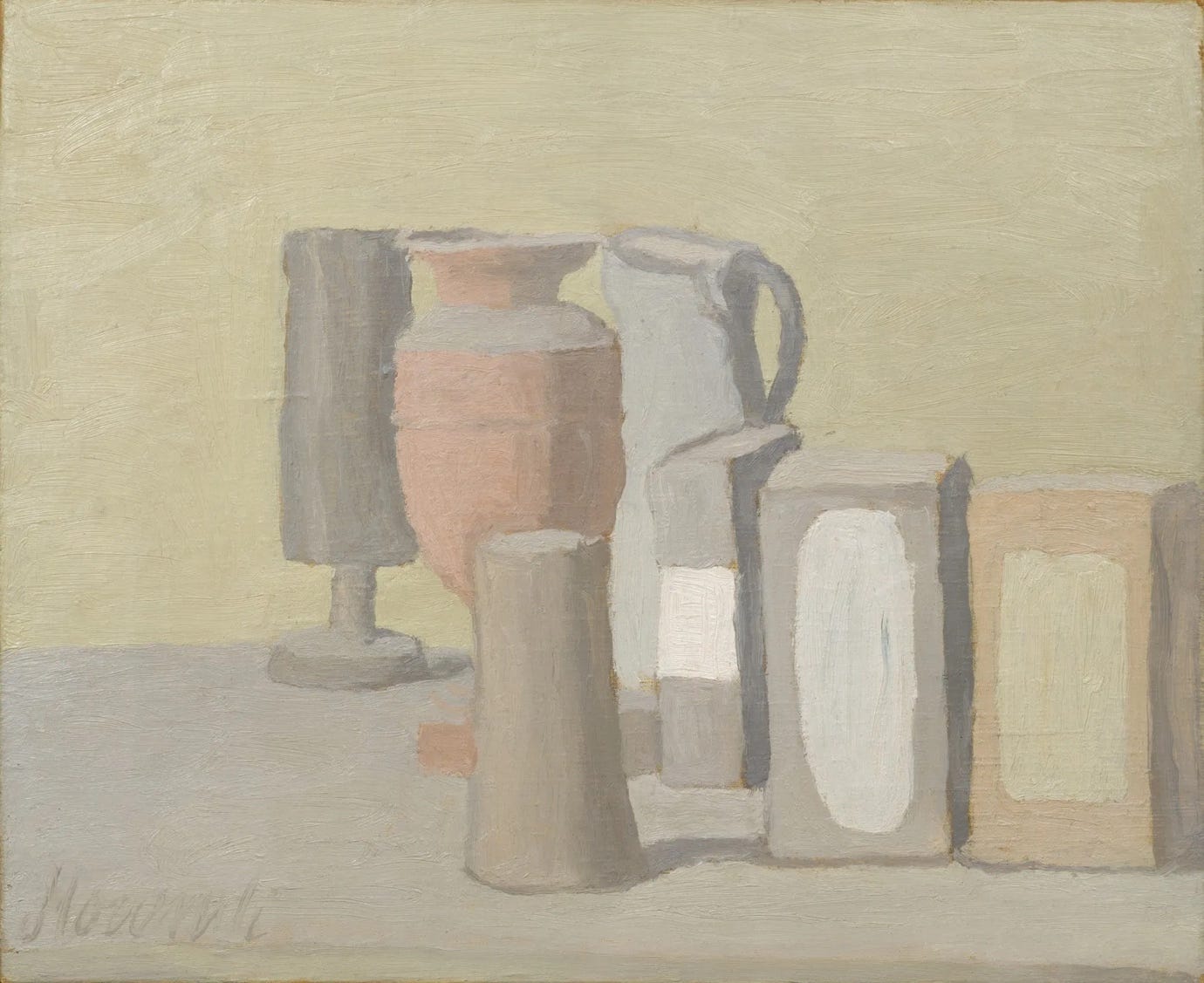
Art doesn’t change the world. It’s not a panacea. But it does change something. It stills us for a moment. Shows us something we might not have noticed before or seen so clearly. Offers us new ways to see and think and be.
When I hold steady, when I ride through all the skittering of mental chatter and fidget that keeps pulling me away to something easier, something quicker, when I can wait until all that settles, the mind eventually finds a space that is quiet yet alert.
This is coming home. This is the still point, where the waters pool, settle and become clear. This is creative work as contemplative practice, as meditation. The constant rumination starts to lose momentum and something that is not quite thought exactly but something adjacent to it can begin to do its quiet work. It does this work so slowly that it’s only later can you see what has emerged.
I’ve been working as an artist for three decades now. This means I can look back and see how often a train of thought that felt haphazard, vague, frustrating and doubt-filled at the time, has carried something through over many years, like an underground stream that flows for miles before rising in a spring.
I’ve learned that when I feel stuck and discouraged and can’t see the way forward it’s best to keep moving by circling back. Creative work doesn’t flow in straight lines. You can go back and pick up a thread you dropped years ago because you are now different, you will do something different with it now, see something you did not see before, some new connection or find new energy in it.
Casting about to pick up a scent trail I feel I’ve lost, a thought-fox gone to ground, I take a stepladder into the studio and lift down a tube that’s been stored there since I moved it here from Edinburgh along with the rest of my belongings.
I carefully slide out a tight roll of drawings and prints that I have not laid eyes on since I hung them in a gallery fifteen years ago. They are curly and awkward, interleaved with many sheets of tissue paper, so I lay them out on a big table and weigh down the corners with books to see what I’ve got.
It’s like meeting old friends again; that same sudden shock of recognition and every feature immediately familiar.
And what I see are the same motifs, the same obsessions, ideas that have gone on percolating through word and image and are still flowing on. The repeated mark, the steady build-up of detail and form, the fascination with the forms that water takes and the weightless organisms that live in it, the patterns of waves, cells, mollusc shells, foams, sponges. The meditative process of making and writing and how these flow in and through each other. Suddenly I am curious and interested again.
These old drawings show me something else too; that all ideas take shape in the way that these drawings do, not from start to finish, placing words one after the other according to a plan, but layer by layer, revision after revision. What begins as blurry and indefinite becomes gradually clearer. What starts out as simple, blunt, ill-defined, becomes granular, more finely detailed, homing in on meaning.
Writing isn’t linear. It begins as a moment recorded, a thought set down on the page. But once thoughts become writing we can circle back to them, reconsider questions left hanging, find connections, revisit moments to examine them more minutely, follow up hunches and flashes of interest.
This thinking seems to move at the plodding and repetitive pace of writing, circling back again and again, rather than at the quick flicker and flow of speech. In writing, you get to have second thoughts, third thoughts, fourth and fifth even. You get to have the wisdom of hindsight. In writing, you get to be a better version of yourself. Eventually.
So, come back to the page again and again, each time without hope or despair, ready to listen, ready to learn. Understanding will grow there incrementally, like lichen on a rock.
There’s no need to try and do something big and important. Work incrementally. Paint your grey bottles. Keep going.
Join the Life Raft Co-Working
Come and paint your grey bottles in company. If you’d like some support in coming back to your creative work, come and join our weekly Zoom session. It’s free. We start with a quick hello chat and share what we’ll be working on, then leave our cameras on and work quietly together for an hour or so. A recording of the previous week’s session shared each Monday on the paid subscriber chat.
That’s all for this week
-Sam
If you liked this you might also enjoy reading…
Finding buoyancy in rough seas
How does a real-life lifeboat stay buoyant in even the roughest of seas? How do the famously self-righting vessels of the RNLI return to stability even when fully capsized, so they can still help others in difficulty?





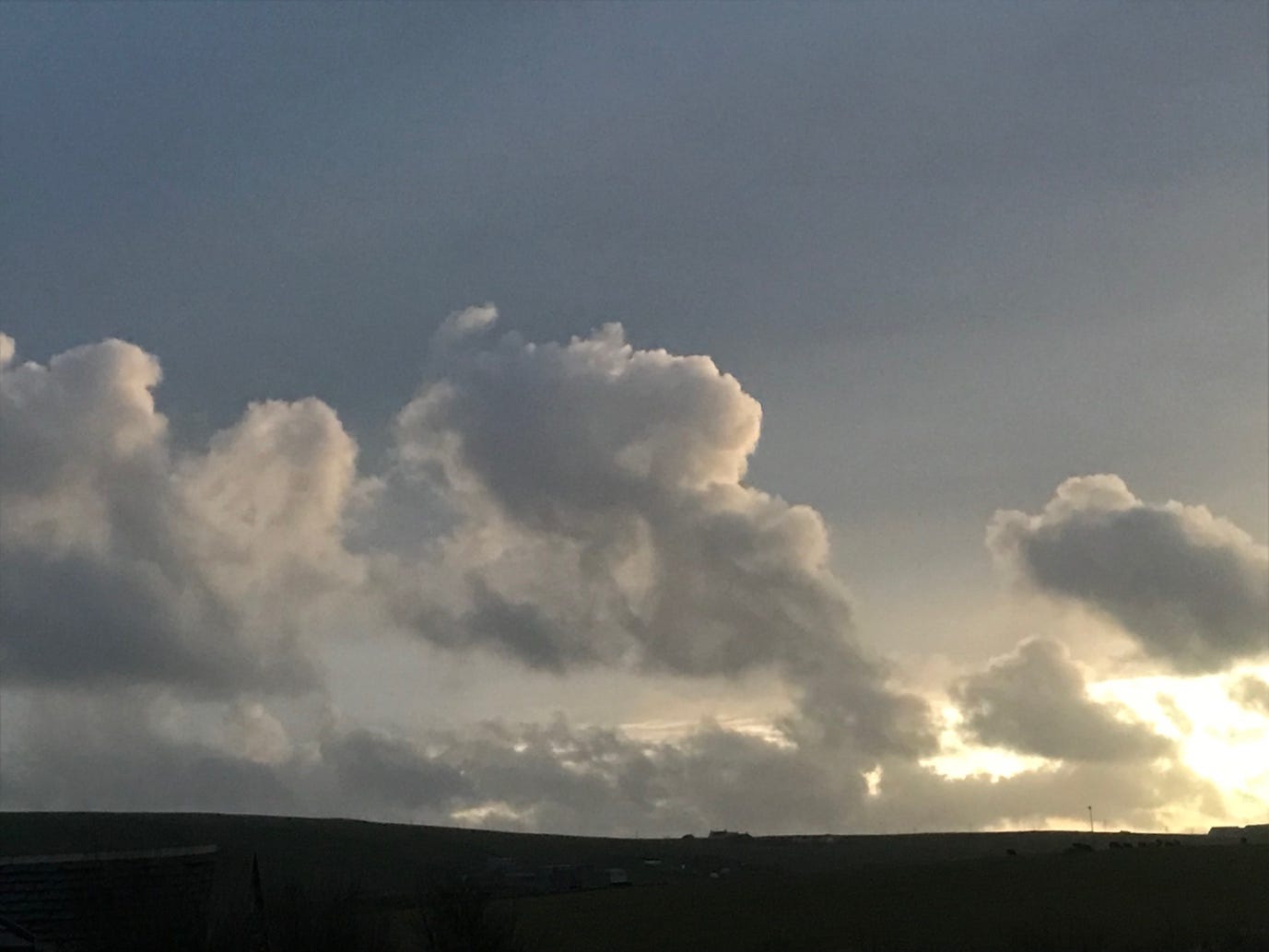
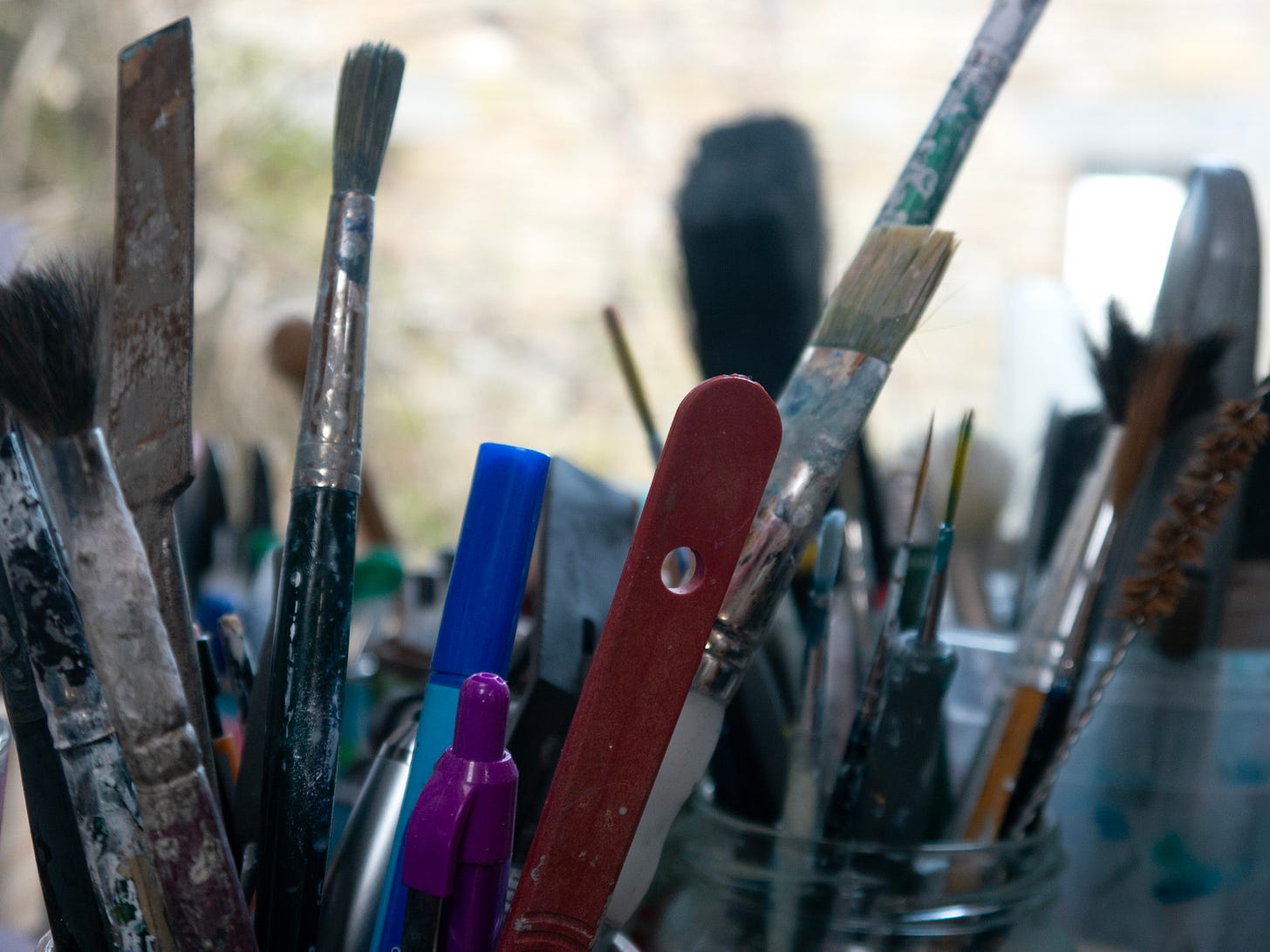

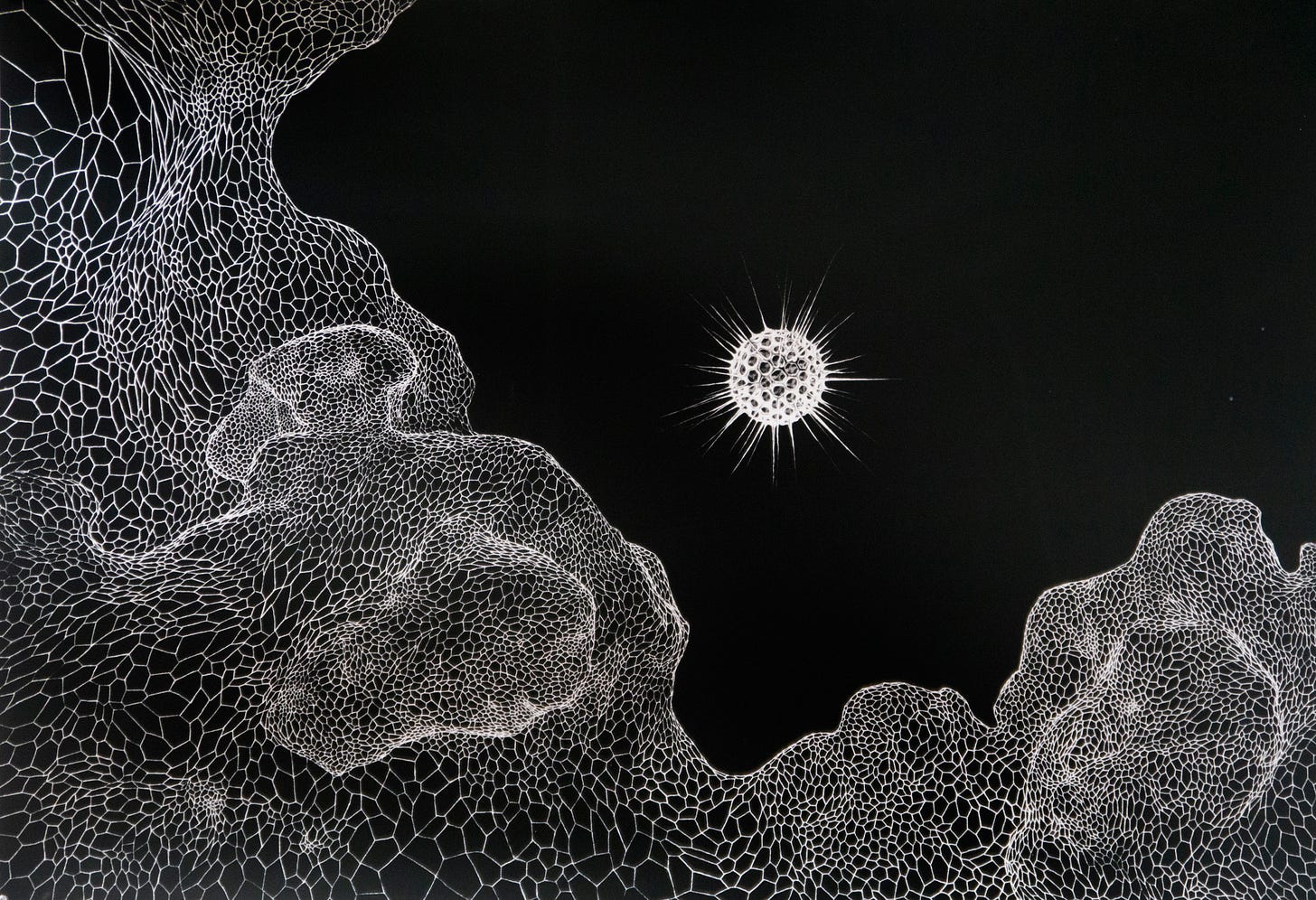



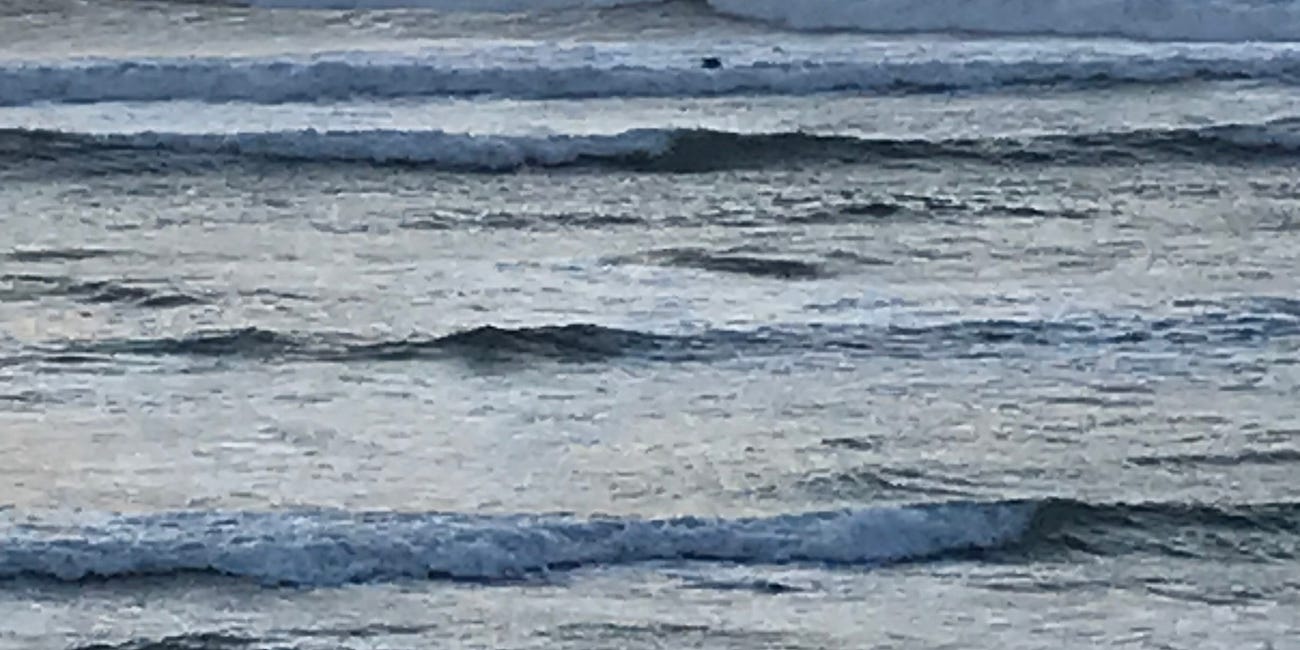

'Words are reluctant to come. Those I set down are clumsy and haphazard, heading first this way, then that. Always the doubt that they’re of any value, if this is how I can best serve these times.'
Beautifully put. Please know that your words have tremendous value. Since discovering them, and your other art, earlier this year, I have found them comforting, engaging and inspiring. Your work with patterns--visual and textual--was very much on my mind when I wrote my recent piece on patterns and repetition. I had intended to link to your work but didn't find the right point as my own text became unwound and I struggled to hold it together. You've expressed here some of what I was trying to get at there, thinking about the value of what we do to 'keep going', and the ways that patterns of behaviour and creativity become apparent to us as result of that keeping going.
A wonderfully calm & thoughtful start to the day. Thanks Sam! I shan't be aboard this afternoon as I'm in Edinburgh and taking in Women in Revolt! Art and Activism in the UK 1970–1990. It will take me back - definitely a circling- to my rebellious twenties but I doubt it will be calming!
Have a very gentle bob on the ocean of calm this afternoon protected with love from the abounding storm x